An Australia Awards Short Course gave agribusiness lecturer Dwi Ratna Hidayati a rare insight into the grains value chain from downstream to upstream, and the potential for advancement when industry works closely with researchers.
After earning a PhD in Agribusiness from Massey University, New Zealand, in 2019, Ratna saw an opportunity to continue learning through an Australia Awards Short Course titled ‘Grains Value Chain Leadership Program,’ held at The University of Queensland in 2023. This Short Course was a collaboration between the Australia Awards in Indonesia and KATALIS, an economic cooperation program between Indonesia and Australia, designed to maximise the benefits of the Indonesia-Australia Comprehensive Economic Partnership Agreement (IA-CEPA).
‘As someone always eager to gain new knowledge, I was very keen to join the Short Course to broaden my understanding of the grains value chain between Australia and Indonesia,’ said Ratna, who lectures in the Faculty of Agriculture at Universitas Trunojoyo, Madura.
‘My perspective on Australia has become even more positive, especially after the Short Course, as I experienced firsthand what it’s like to study at a world-class university. It confirmed its reputation when I saw how Australia provided high-quality speakers and mentors, all of whom were experts in their respective fields.’
Understanding the Stakeholders in the Grain Value Chain
Selected as one of the 25 participants of the Short Course, Ratna highlighted the diversity of the participants' backgrounds, ranging from professionals involved in food crop seed breeding, such as representatives from PT. Botani Seed Indonesia, those from flour milling industries like Bogasari, food processing industries like PT Nutrifood, as well as small and medium enterprises.
‘When studying the value chain, we need to understand the roles of all actors involved,’ Ratna noted.
‘We were given the opportunity to connect with mentors and fellow participants, gaining both theoretical insights and practical experience through site visits. Throughout the Short Course, we were introduced to the entire grains value chain in Australia, from the upstream to the downstream sectors.’
In addition to learning about the grains value chain, Ratna also learned a lot about leadership during the Short Course.
‘During a sharing session with Richard Simonaitis, CEO of Grains Australia, he explained that being a good leader means moving forward together so that people voluntarily want to follow, not just giving instructions and commands. True leaders are those who work alongside others, embracing everyone to step forward together,’ shared Ratna.
Industry and Research Collaboration in Australia
Among the topics covered during the two-week Short Course, what stood out to Ratna the most was the strong collaboration between researchers and industry in Australia.
‘We were introduced to the Australian Grains Export Innovation Centre (AEGIC), a key player connecting researchers with the wheat industry in Australia. As an academic and researcher, I found it fascinating to see how integrated the research and industry sectors are in Australia and to understand the crucial role that researchers play in advancing the industry,’ Ratna explained.
‘My mentor during the Short Course was Chris Carter, AEGIC’s Market Insights Manager. Chris regularly conducts market demand research in other countries and reports this data to Australian wheat industry players. He also analyses the best steps for the Australian wheat industry to take in response to market demand for wheat commodities in other countries.’
Reflecting on AEGIC’s collaboration with the Australian wheat industry, Ratna pointed out that in Indonesia, local industry players were still not prioritising the use of researchers' data to adjust to market demands.
‘In Australia, the researchers’ role in contributing to the advancement of the industry is very evident,’ said Ratna. ‘The Short Course also made me realise how powerful Indonesia’s bargaining position is as a major wheat buyer on the international stage.’
Research on Imported Australian Wheat Products
Armed with her expertise in the food value chain, along with the new knowledge gained during the Short Course, Ratna authored a review for her Award Project.
‘I decided to research how Indonesia manages wheat products imported from Australia, as we still fully rely on imports for raw materials,’ explained Ratna.
‘The paper provides insights to practitioners and policymakers into the challenges within Indonesia's wheat value chain, particularly in food processing and distribution. We examined the barriers that are hindering the creation of a sustainable wheat value chain in Indonesia.’
In her research, Ratna found government intervention in the wheat value chain in Indonesia created both enablers and barriers. For example, when the government carried out minimal intervention, the barriers included low consumer awareness of sustainability issues, a lack of power to influence supplies (price, quality and quantity), and difficulty in monitoring the implementation of standards by milling and food processing companies.
The paper, titled ‘Exploring Enablers and Barriers to Developing Sustainability of Indonesia’s Wheat Value Chain in Food Processing and Distribution: A Review’, received positive feedback from her mentor, Chris Carter, as well as from Associate Professor Ammar Abdul Aziz and Dr Julius Kotir, from The University of Queensland. They saw the potential for the paper to be published in an international journal, which Ratna is now working towards.
‘I believe that the good relationships I have built with these colleagues could pave the way for future collaborations,’ she added.
Contributing to Academia, Indonesia and Beyond
Ratna also took the opportunity during her brief study in Australia to observe the teaching and learning at The University of Queensland.
The Short Course has influenced the way she teaches her Agribusiness Product Marketing course at Universitas Trunojoyo. To enhance the students’ learning experience, she regularly invites expert practitioners, such as Andi Hakim Syakur from Bogasari, to deliver guest lectures and share insights on the strategic importance of the wheat sector in Indonesia. She also organises visits to Bogasari, giving students firsthand exposure to wheat processing and supply chain operations.[1]
In late 2023, Ratna was invited to speak at an alumni sharing session for the Australia Awards Short Course on ‘Standards and Halal Certification’ held by The University of Queensland.[2]
Then, at the beginning of 2024, she was invited by her Short Course colleague, Fitria Mustikaningrum, a lecturer in the Nutrition Science program at the Faculty of Health, Muhammadiyah Universitas Surakarta, to speak to young lecturers who were aspiring to pursue scholarships abroad.
In 2025, Ratna was appointed as a panel reviewer for the Australia Awards Short Course, tasked with selecting top candidates for the Grains Value Chain Leadership Program. Her journey from participant to reviewer reflects a remarkable progression and deep commitment to capacity building in the sector.
Ratna has also served as a peer reviewer in the field of value chains and agrifood systems for several reputable international journals. Looking ahead, Ratna hopes to contribute more globally, particularly by helping developing countries to build sustainable agrifood value chains in their regions.
‘In essence, I want to contribute through community development, and I aim to be useful to many people,’ she concluded.
[1] https://pertanian.trunojoyo.ac.id/2024/09/antusias-mahasiswa-program-studi-agribisnis-utm-dalam-kuliah-praktisi-dan-kunjungan-industri-ke-bogasari-flour-mills-surabaya/
[2] https://pertanian.trunojoyo.ac.id/2024/05/dosen-agribisnis-fakultas-pertanian-utm-menjadi-pembicara-tamu-pada-sesi-alumni-sharing-short-course-training-australia-awards-indonesia-aai/
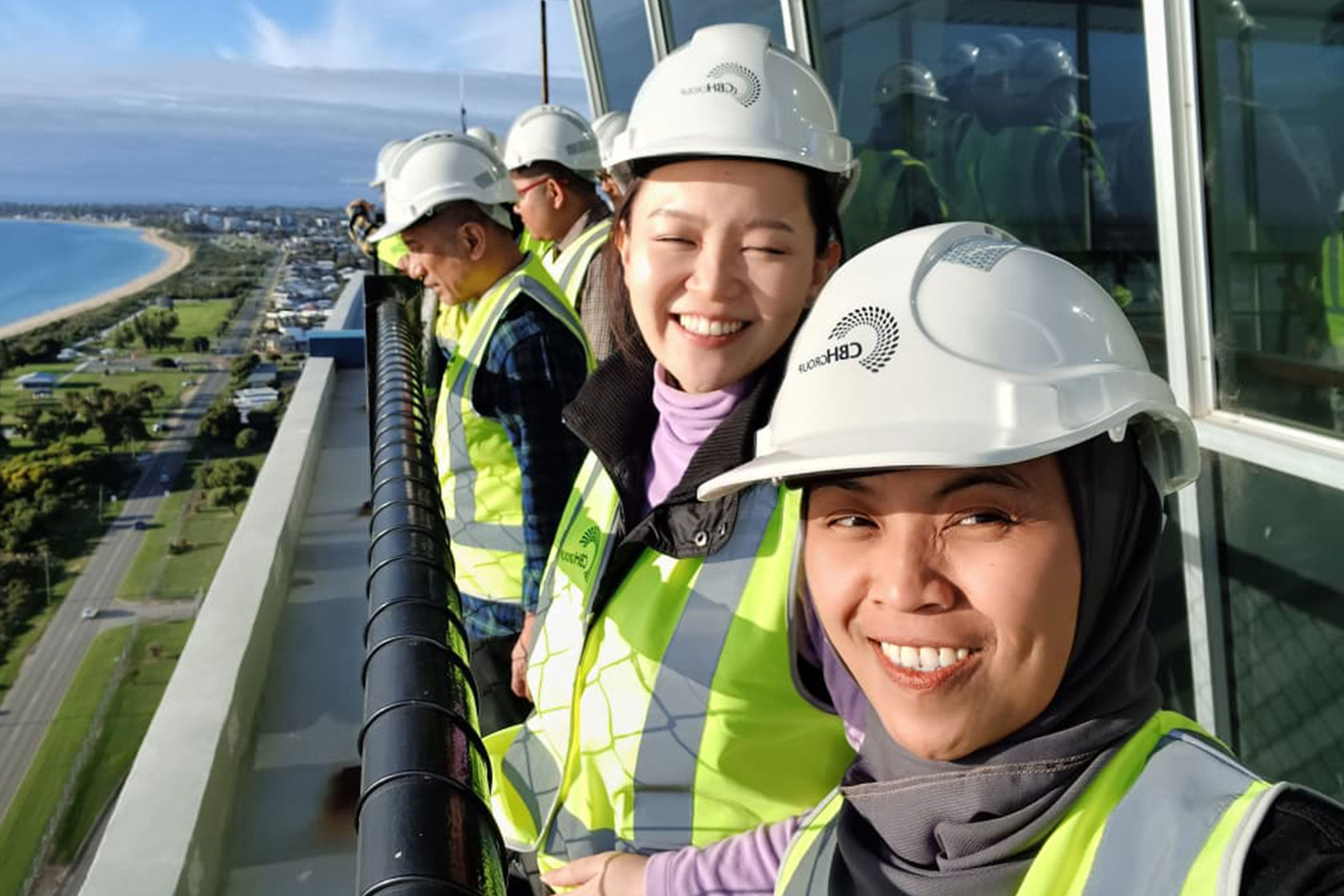
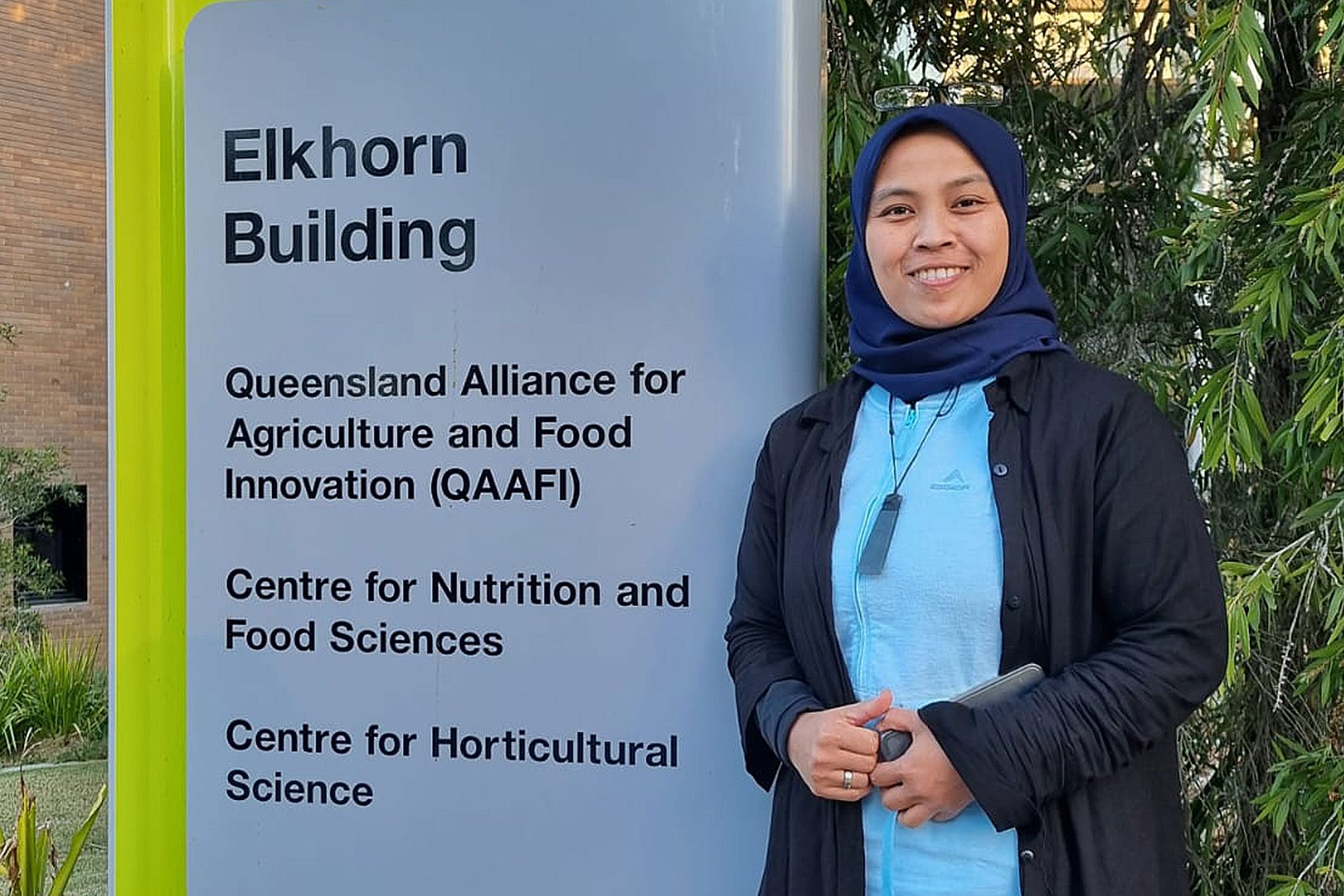
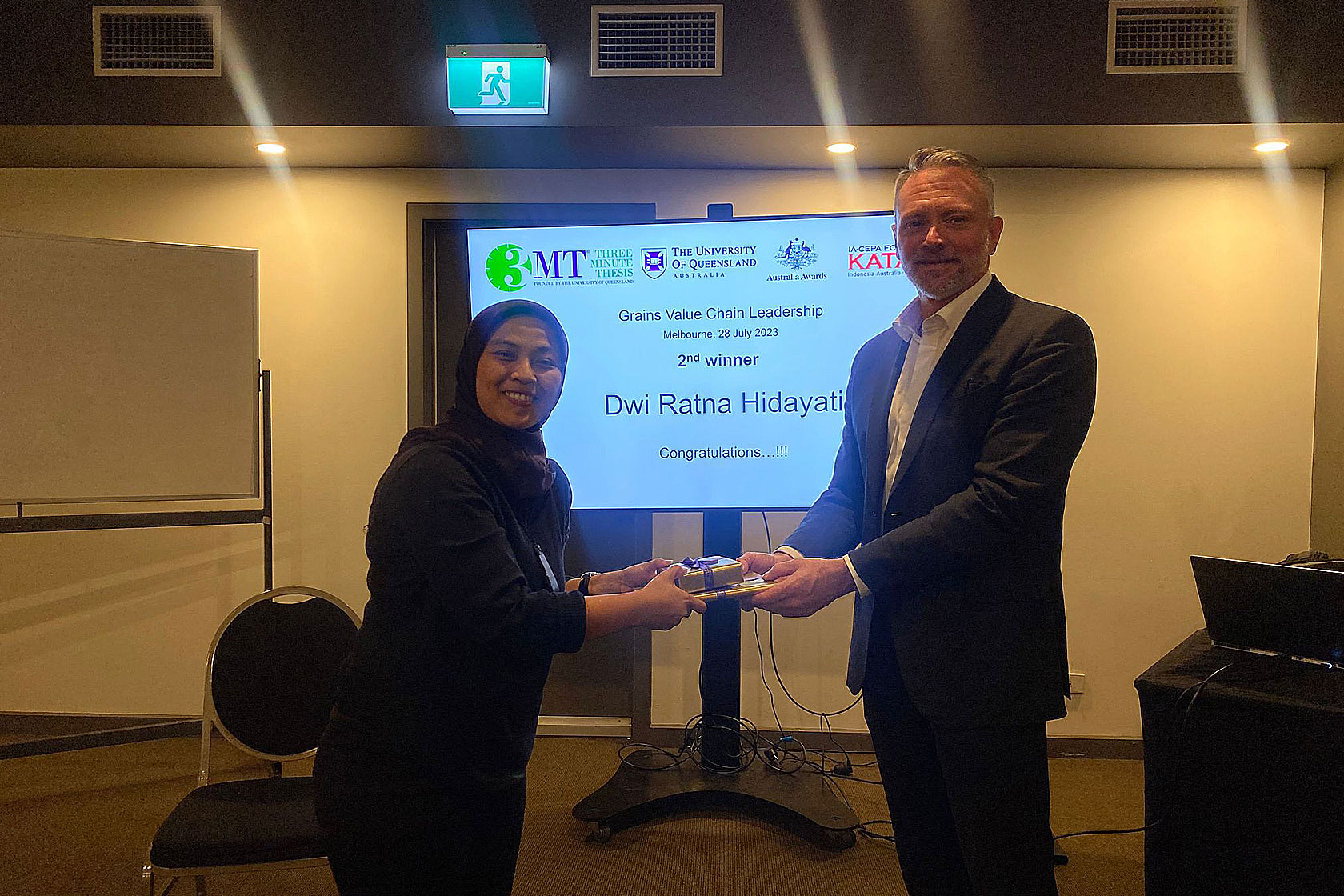
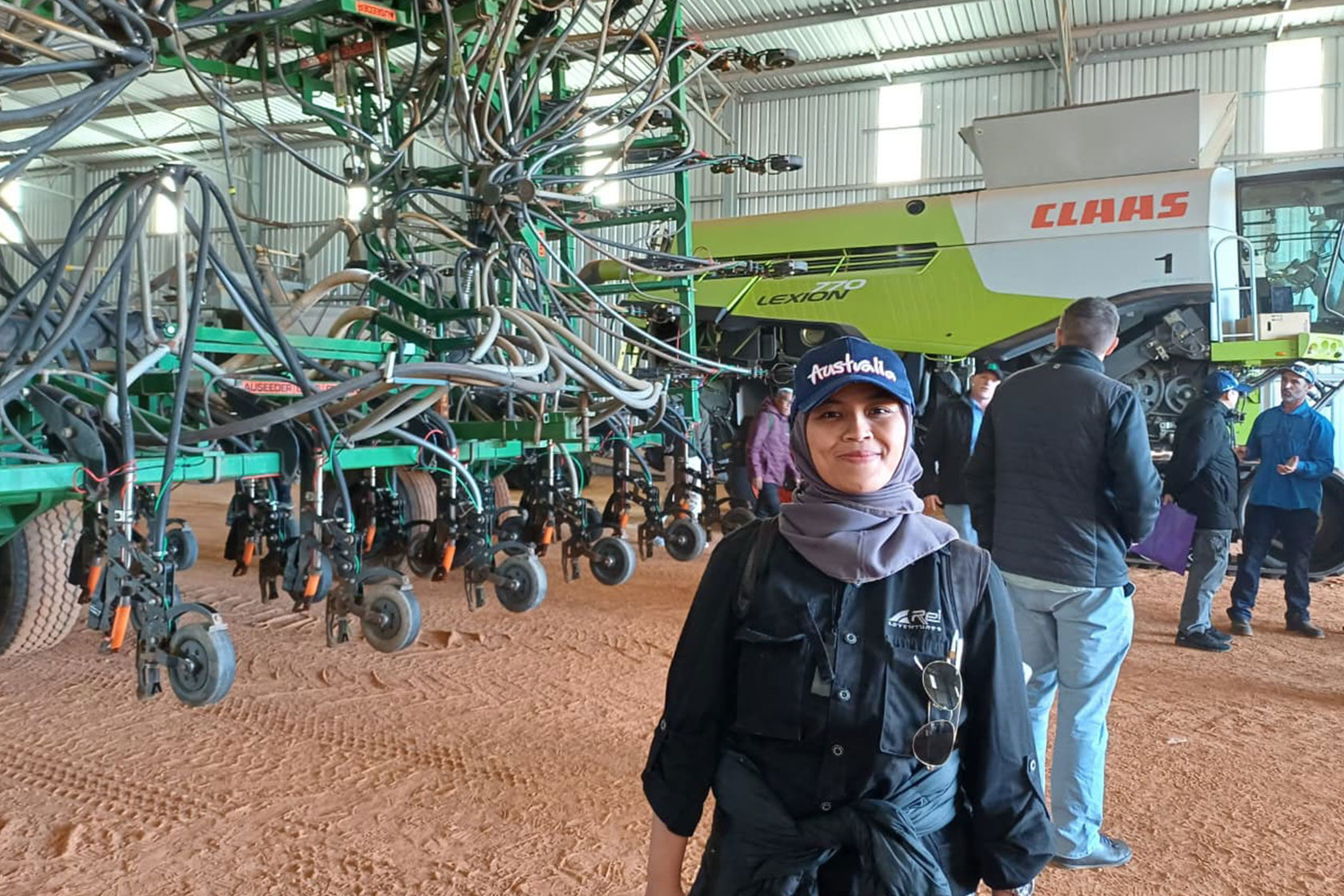
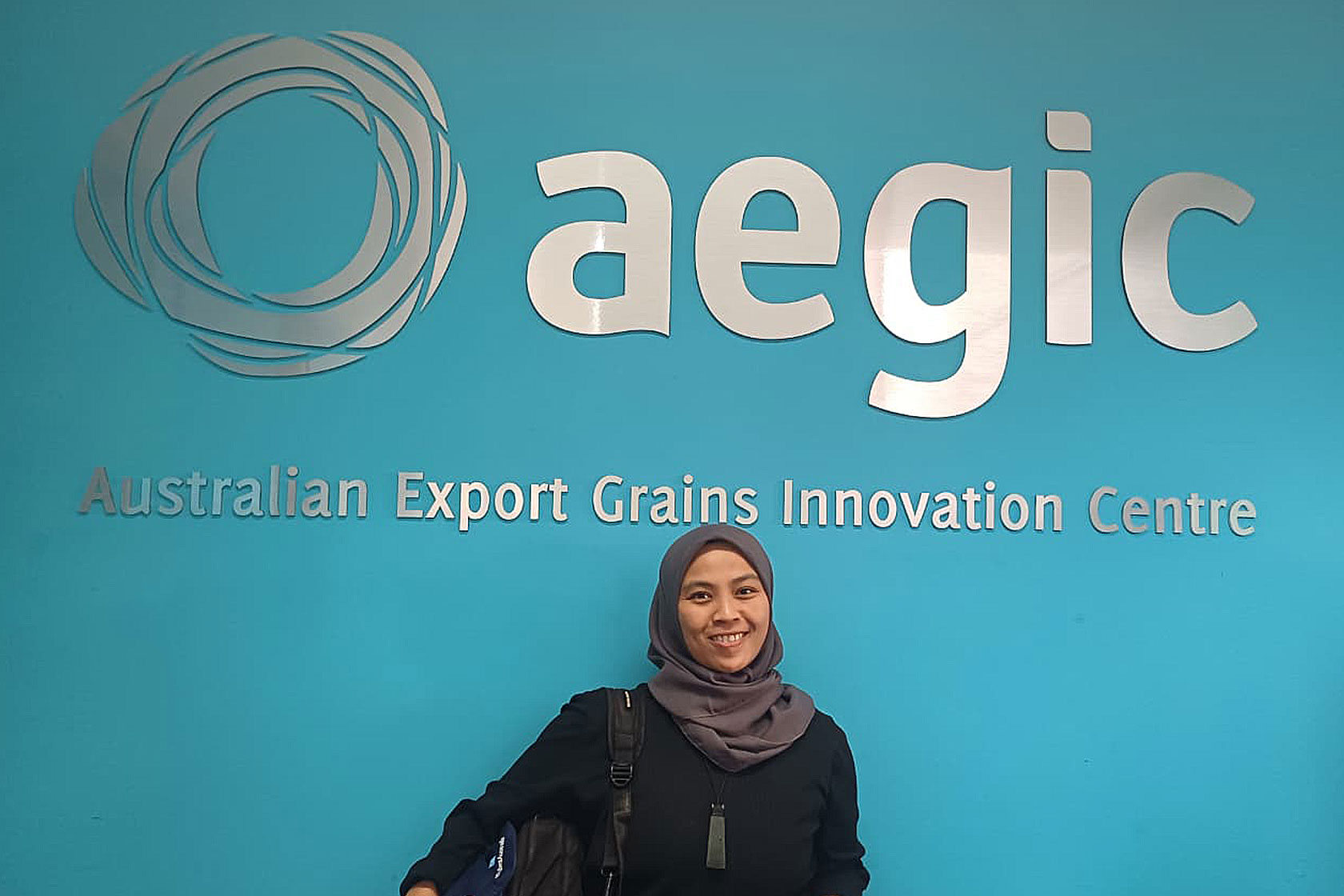
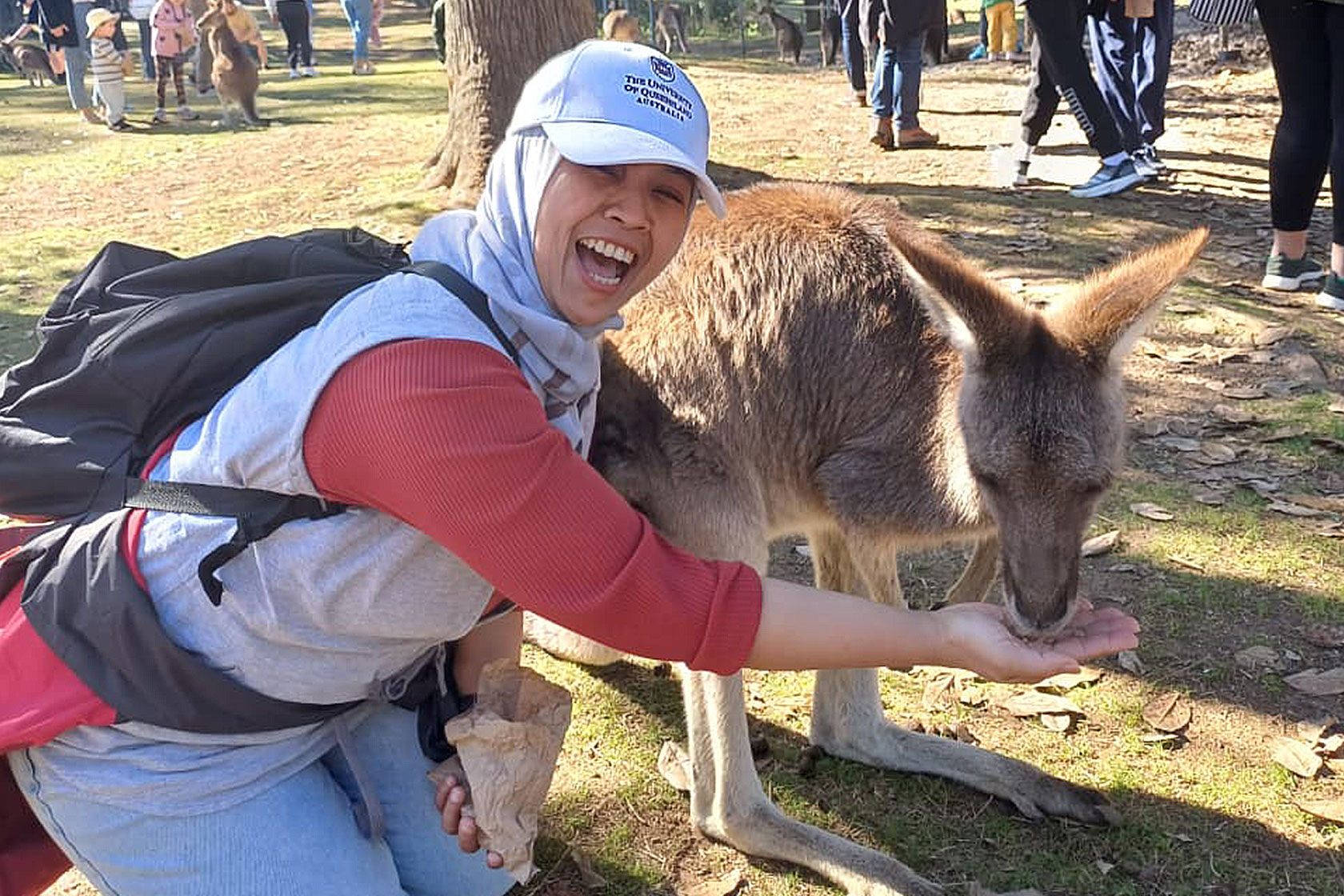

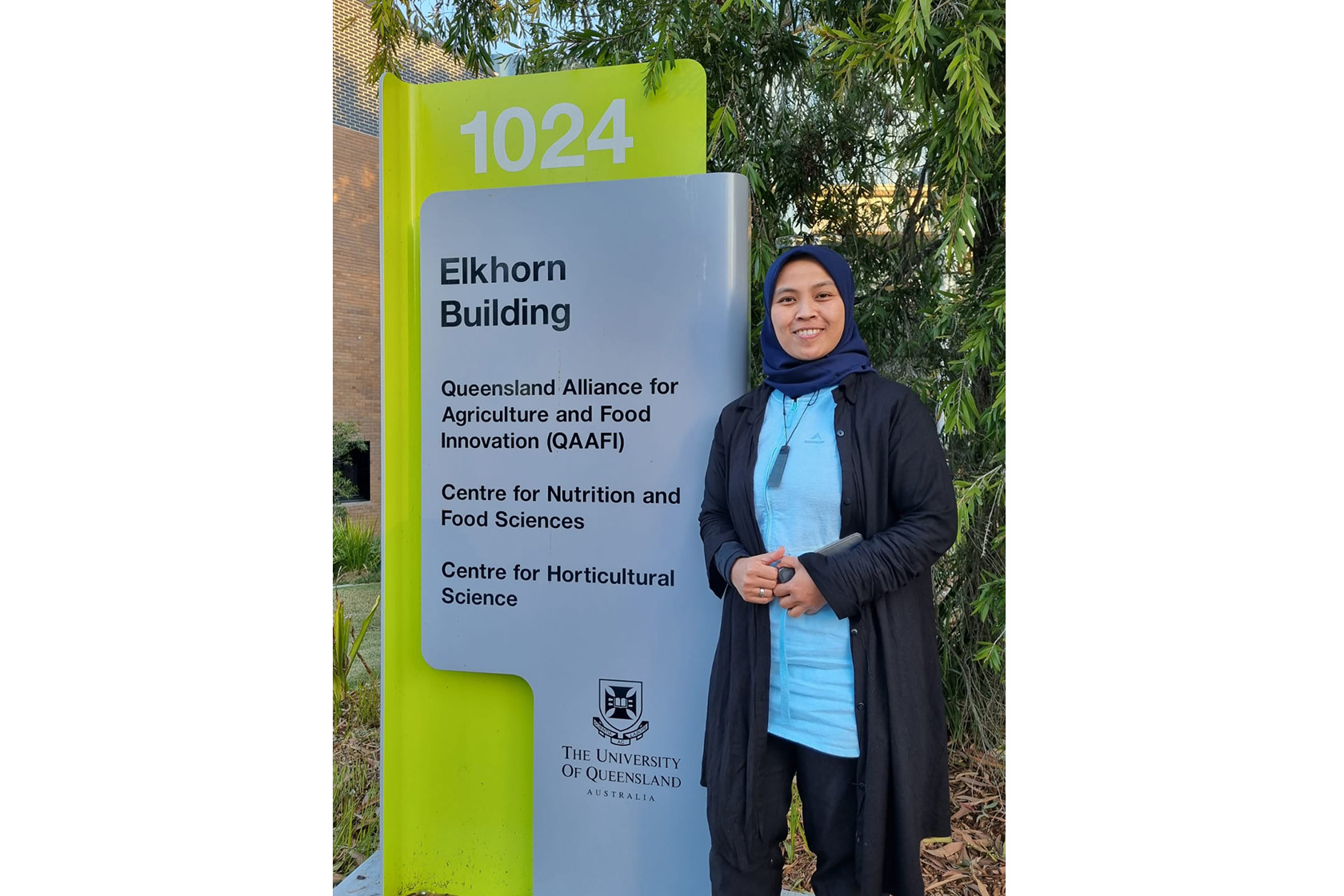
 Upaya Dwi Ratna Hidayati untuk Meningkatkan Rantai Nilai Gandum yang Berkelanjutan Melalui Penelitian dan Pendidikan
Upaya Dwi Ratna Hidayati untuk Meningkatkan Rantai Nilai Gandum yang Berkelanjutan Melalui Penelitian dan Pendidikan
